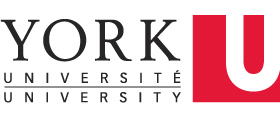Defining Korean Canadian Studies
Cluster Objectives: This cluster will define Korean-Canadian Studies and bring together those involved and interested in the Korean diaspora in Canada. Although work on the Korean diaspora and migration goes back roughly 30 years and recent scholarship on Korean migrants in Canada signals the emergence of a new generation of scholars, a cohesive identity with a well-defined collection and network under this umbrella has yet to materialize. In Canada, research on the Korean diaspora focuses on stress, entrepreneurship, new destinations, seniors, international students and education migrants, transnational (kirogi) families, and North Korean migrants. However, Korean-Canadian Studies, as a sub-specialty in the social sciences and humanities, is not well-defined, and scholars who work in the area form loose networks with informal links to community, business, and government. Two current developments make this an opportune moment to explore the possibility of defining ourselves in a way that is open, flexible, interdisciplinary, collaborative, and synergistic: the growth in the number of scholars across multiple disciplines in Canada who might identify as working in this area and with whom we can make cross-sector linkages; and a growing body of work on the Korean diaspora in other places, namely the United States and to a lesser extent, Australia, China, Japan, New Zealand, and the UK.
The first development led to an initiative to unite the research efforts of multi-disciplinary scholars in the area of Korean-Canadian Studies without explicitly attaching a label to this work. It resulted in the publication of the edited volume, Korean Immigrants in Canada: Perspectives in Migration, Integration and the Family (eds. Samuel Noh, Ann H. Kim, and Marianne S. Noh, the University of Toronto Press in 2012), and several articles on transnational migrants. The second major impetus for establishing Korean-Canadian Studies is the potential for international collaboration and comparative thought with the three resources: the unique Research Center for Korean Community; the Korean American Data Bank at Queen’s College and the Brill Companion to Korean American Studies to be published in mid-2018. The cluster’s primary objective is to bridge together traditionally distinct and separate spheres: the academic, community, business, and government. Our goals are to define Korean-Canadian Studies, strengthen local networks, and promote internationally the Korean diaspora in Canada. We will achieve these objectives through research and educational activities that encourage connections among the different spheres.




